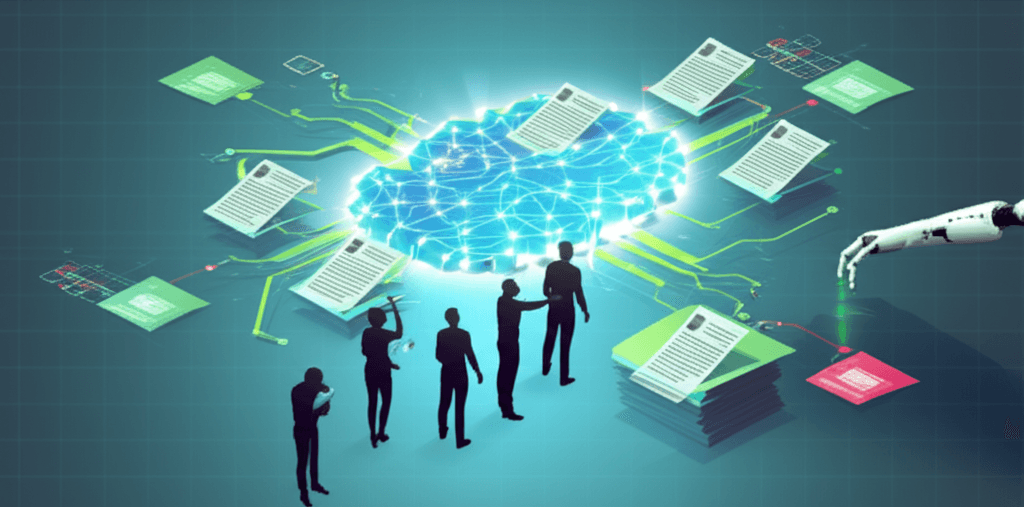AI Drives 1,300 Layoffs at Job Search Platforms Indeed, Glassdoor
Job search leaders Indeed and Glassdoor shed 1,300 jobs as AI-driven automation ironically transforms their own workforce.
July 12, 2025

In a significant and somewhat ironic move, job search and company review platforms Indeed and Glassdoor are reducing their workforce by approximately 1,300 employees.[1][2][3] The layoffs, which amount to about 6% of the workforce at their parent company, Japan-based Recruit Holdings, are being driven by a strategic pivot towards integrating artificial intelligence into the core of their operations.[1][4][2] The decision underscores a broader trend of AI-driven automation reshaping industries, with the very platforms designed to facilitate employment now citing technological advancement as a reason for job reductions.[5]
In an internal memo to employees, Recruit Holdings CEO Hisayuki “Deko” Idekoba directly addressed the role of AI in the restructuring. "AI is changing the world, and we must adapt by ensuring our product delivers truly great experiences for job seekers and employers,” he stated.[2][6][3] This move is part of a larger strategy to simplify and accelerate the hiring process through technology.[5][7] The company is not just adopting AI but is fundamentally reorganizing its structure to prioritize an AI-first approach.[4] As part of this reorganization, Glassdoor's operations will be integrated into Indeed, leading to the departure of Glassdoor CEO Christian Sutherland-Wong.[1][4][7] Indeed's Chief People and Sustainability Officer, LaFawn Davis, is also set to depart.[4][3] The majority of the layoffs will affect U.S.-based teams, particularly in research and development, growth, and people and sustainability departments.[1][4][7]
The rationale behind this strategic shift was further illuminated by Idekoba during a technology conference where he highlighted the manual labor-intensive nature of the HR industry.[1][8] He noted that the human resources sector, a market valued at over $300 billion, has costs comprised of 60% to 65% manual human labor.[1][8] Recruit Holdings aims to significantly reduce this reliance on manual work by leveraging AI and data.[2] Idekoba revealed that AI is already writing about one-third of the company's new programming code, a figure he expects to rise to 50% in the near future.[1][2] This embrace of automation is intended to streamline everything from candidate sourcing and screening to interview scheduling, freeing up human recruiters to focus on more strategic, relationship-building aspects of their roles.[9][10][11]
The impact of artificial intelligence on the recruitment industry is undeniable and multifaceted. AI tools are increasingly being used to automate a wide range of tasks, including the creation of job descriptions, screening resumes, and engaging with candidates through chatbots.[9][10][12] Proponents argue that this automation leads to significant gains in efficiency, reducing the time and cost per hire.[13][14] AI can screen vast numbers of applications quickly, matching candidates to roles based on skills and qualifications, which can also help in reducing human bias from the initial stages of recruitment.[13][15] Studies have shown that a majority of employers using AI in recruitment report time savings and increased efficiency.[13] The technology can handle administrative burdens, allowing human resource professionals to concentrate on more complex, value-added activities like building relationships with top candidates and making final hiring decisions.[11][12] The goal, as many in the industry see it, is not to entirely replace human recruiters but to augment their capabilities, creating a more efficient and effective hiring process.[13][10]
The layoffs at Indeed and Glassdoor serve as a stark indicator of the transformative, and at times disruptive, power of artificial intelligence on the labor market.[5] While AI promises to create new efficiencies and even new roles, it is also leading to job displacement, particularly in positions with tasks that can be automated. This move by a major player in the HR technology space signals a significant acceleration of this trend.[16] The irony of job search platforms cutting their own staff due to automation has not been lost on observers, with some affected employees highlighting the paradox of seeking new employment after being replaced by technology at a company dedicated to helping others find jobs.[17] This situation raises critical questions about the future of work, the types of skills that will be most valuable in an AI-driven economy, and the societal responsibility to manage the transition for displaced workers.[5] As companies across various sectors continue to integrate AI, the experience of Indeed and Glassdoor's former employees may become increasingly common, underscoring the urgent need for conversations around reskilling, adaptation, and the ethical implications of an AI-powered workforce.[18]
Sources
[1]
[6]
[8]
[9]
[11]
[12]
[13]
[14]
[15]
[16]
[17]
[18]